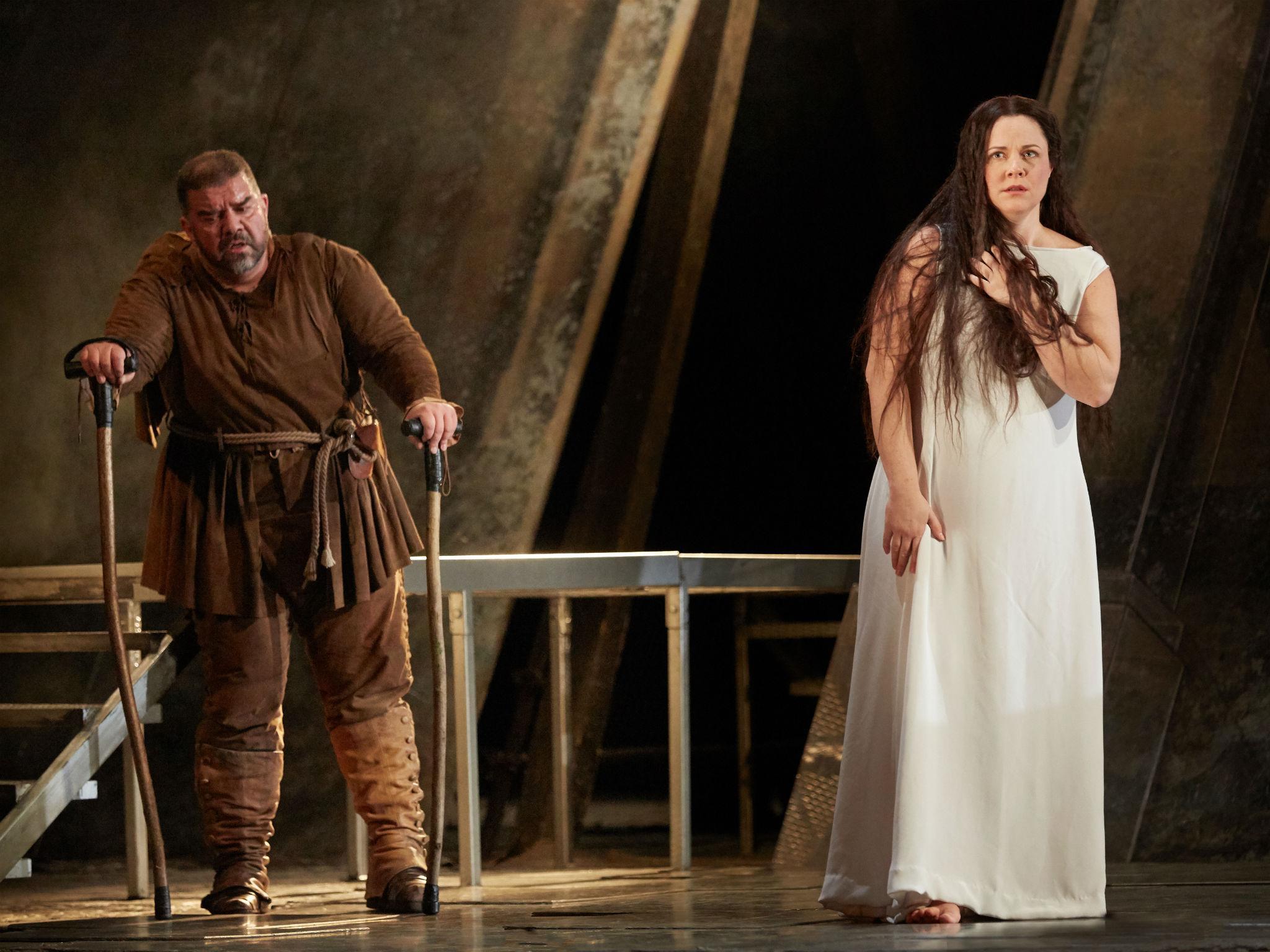Rigoletto, Royal Opera House, London, review: The sell-by day looks passed for this revival
David McVicar’s production of Verdi's opera has been revived again

Your support helps us to tell the story
From reproductive rights to climate change to Big Tech, The Independent is on the ground when the story is developing. Whether it's investigating the financials of Elon Musk's pro-Trump PAC or producing our latest documentary, 'The A Word', which shines a light on the American women fighting for reproductive rights, we know how important it is to parse out the facts from the messaging.
At such a critical moment in US history, we need reporters on the ground. Your donation allows us to keep sending journalists to speak to both sides of the story.
The Independent is trusted by Americans across the entire political spectrum. And unlike many other quality news outlets, we choose not to lock Americans out of our reporting and analysis with paywalls. We believe quality journalism should be available to everyone, paid for by those who can afford it.
Your support makes all the difference.The revival of David McVicar’s production of Rigoletto for the umpteenth time prompts the thought that it may be time to replace it.
The opening court orgy feels as tired as the little token pats that the flagellomaniac members of the party bestow on each other, while the nudity just seems prurient. The set itself, an all-purpose cliff-face of girders and plastic, is so cumbersome, and takes so long to manoeuvre into position, that one longs for the down-home simplicity of the Hopper-style sets of Jonathan Miller’s production at the Coliseum.
The direction of the huge, richly costumed chorus remains very effective, radiating a feral combination of lust and nihilistic violence. But that seems to be McVicar’s main interest: despite the bel canto glory of Michael Fabiano’s Duke and the sinister cavernousness of Andrea Mastroni’s Sparafucile, it comes at the expense of the central drama, which functions only fitfully.
Dimitri Platanias brings heft and a fine melodic line to the title role, Sofia Fomina’s Gilda is on the whole ravishingly sung, and in duet their voices soar gracefully. But the pathos of Rigoletto’s life, and the vulnerability of the father-daughter relationship, seems only skin-deep. And when our hearts should freeze with horror, we feel nothing much, because this Rigoletto just goes on singing routinely, rather than reflecting total shattering when he unveils his daughter’s body. It’s as though revival-director Justin Way has simply left him to his own devices, with his priority being to sing, rather than to act.
A determined effort on the part of McVicar’s team might pull this show round, but the sell-by date looks like it has passed.
Join our commenting forum
Join thought-provoking conversations, follow other Independent readers and see their replies
Comments